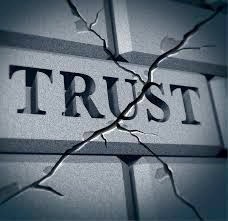
Daum v Clapci 2016 BCCA 176 recently discussed the liability of a trustee for failing to properly insure a hotel that burned stating inter alia.
The test for liability is essentially one of honesty and reasonable man prudence in administering the estate affairs as if they were his or her own.
THE LAW
23 The trial judge described Mr. Clapci’s decision to eliminate replacement insurance coverage for the Hotel as “recklessness”, but he found that this conduct was not linked to Mr. Clapci’s duties as a trustee and therefore did not constitute a breach of trust. In reaching that conclusion, the trial judge relied on Waters’ Law of Trust in Canada, 4th ed., at page 932 and following.
24 Professor Waters at pages 931 and 932 states that “[t]he duty of loyalty requires the avoidance of situations where that duty conflicts with the self-interest of the fiduciary” but “should not encompass activities which are so remote from the task undertaken that they could not in any reasonable assessment be said to be forbidden”.
Equity has come to take the view that the solution is provided by an examination of the scope of the agency or task undertaken. If the person who owes fiduciary duties is acting outside the scope of the task he has undertaken – that is, in a manner which has nothing to do with his task – then he will not be required to hand over to the principal any profit which he has made or to desist from any intended activity which would render him profit.
Even by narrowing the principle in this way, however, there are bound to be difficult questions of fact as to whether the particular fiduciary was indeed in the circumstances acting within the scope of his activity when he made a profit for himself, or was positioning himself to make such an intended profit. But the difficult questions of fact which have ceaselessly troubled the courts cannot be avoided; they are inseparable from the application of the principle of conflict of interest and duty.
Professor Waters notes at page 906:
[A] trustee must act honestly and with that level of skill and prudence which would be expected of the reasonable man of business administering his own affairs.




